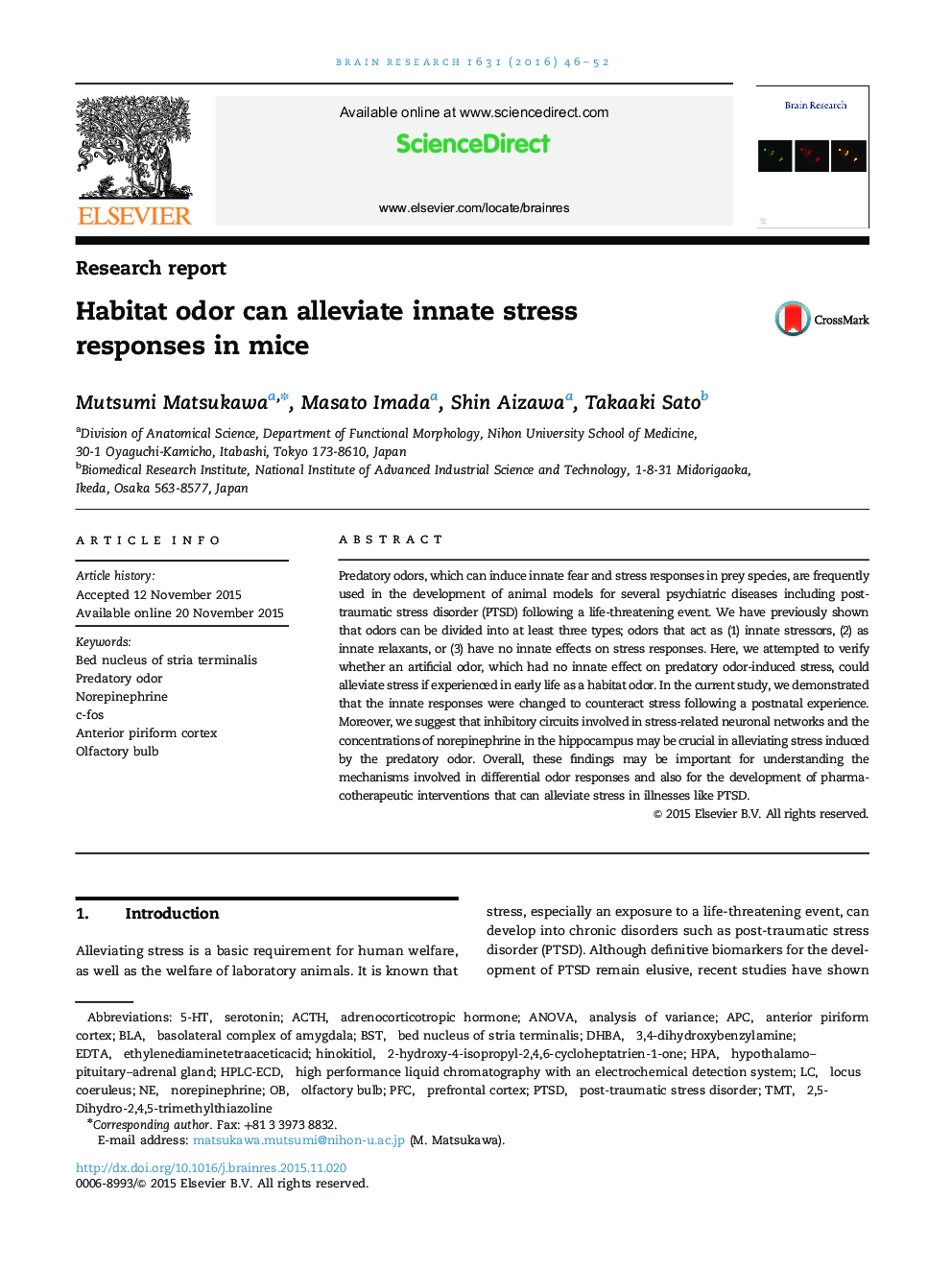| Article ID | Journal | Published Year | Pages | File Type |
|---|---|---|---|---|
| 6262618 | Brain Research | 2016 | 7 Pages |
â¢Habitat odor can change the innate response to odors.â¢Experiences in early life contribute to individual differences in adulthood.â¢Habitat odors can alleviate predatory odor-induced stress responses.â¢Norepinephrine levels in the hippocampus may be crucial in alleviating stress.
Predatory odors, which can induce innate fear and stress responses in prey species, are frequently used in the development of animal models for several psychiatric diseases including post-traumatic stress disorder (PTSD) following a life-threatening event. We have previously shown that odors can be divided into at least three types; odors that act as (1) innate stressors, (2) as innate relaxants, or (3) have no innate effects on stress responses. Here, we attempted to verify whether an artificial odor, which had no innate effect on predatory odor-induced stress, could alleviate stress if experienced in early life as a habitat odor. In the current study, we demonstrated that the innate responses were changed to counteract stress following a postnatal experience. Moreover, we suggest that inhibitory circuits involved in stress-related neuronal networks and the concentrations of norepinephrine in the hippocampus may be crucial in alleviating stress induced by the predatory odor. Overall, these findings may be important for understanding the mechanisms involved in differential odor responses and also for the development of pharmacotherapeutic interventions that can alleviate stress in illnesses like PTSD.
